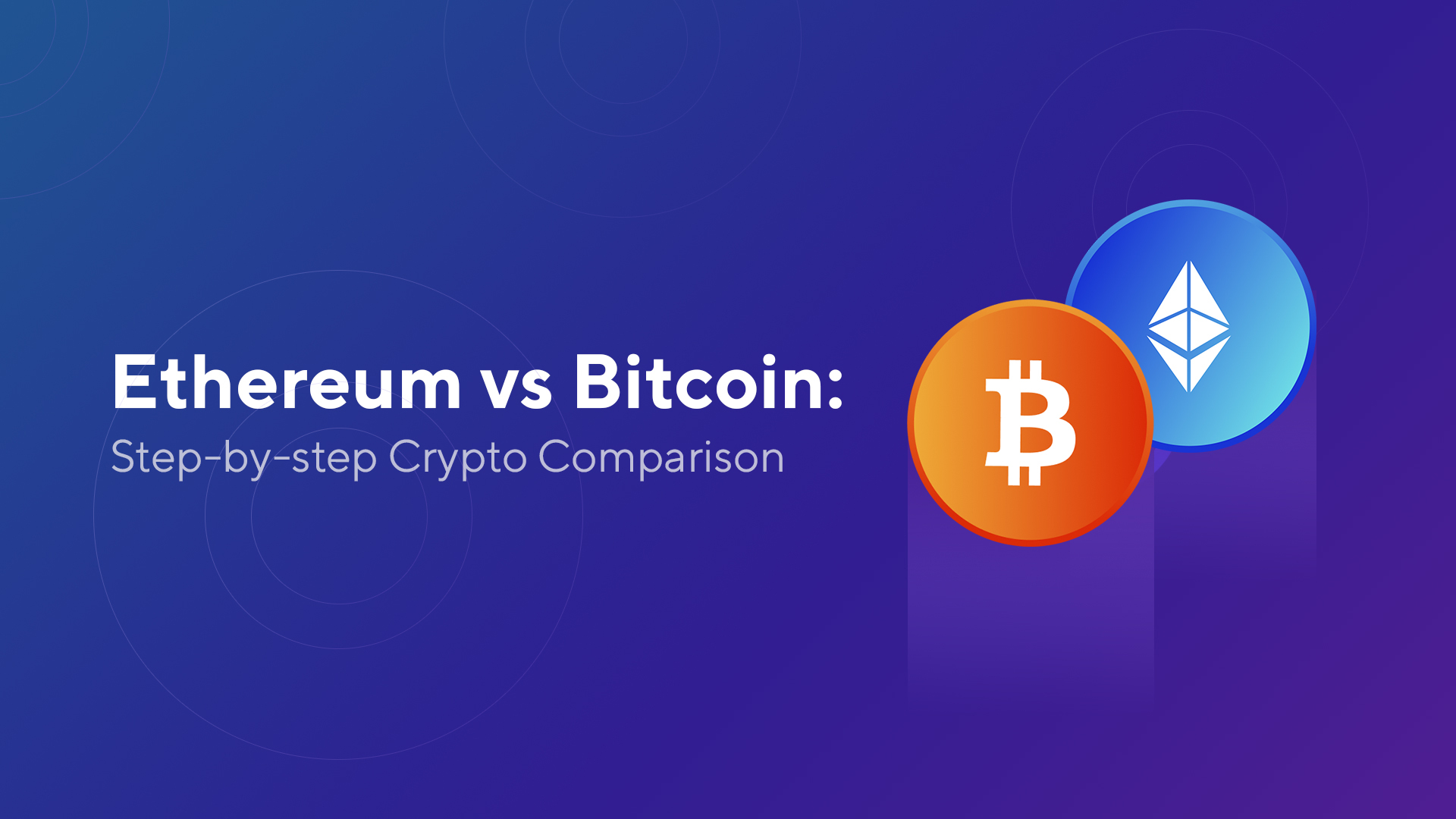Business Administration Jobs with Visa Sponsorship UK
Securing a business administration position in the UK can be a rewarding career move, especially with the added benefit of visa sponsorship. This comprehensive guide navigates the intricacies of finding and securing such roles, providing insights into the job market, visa requirements, and effective job search strategies. We'll explore the various sectors offering these opportunities, the skills and qualifications needed, and the steps involved in both the job application and visa processes.
Understanding the UK's immigration policies and the specific requirements for visa sponsorship is crucial for international professionals. This guide aims to demystify the process, providing practical advice and resources to help you successfully navigate the challenges and maximize your chances of securing a fulfilling career in UK business administration.
Job Market Overview
The UK job market for business administration roles offering visa sponsorship is a dynamic landscape influenced by economic conditions, Brexit, and evolving industry needs. While competition exists, opportunities are available for skilled professionals willing to navigate the visa process. This overview provides insight into the current demand, key sectors, regional salary variations, and common visa sponsorship types.
Demand for business administration professionals with visa sponsorship fluctuates, correlating with the overall health of the UK economy and specific industry growth spurts. Sectors experiencing rapid expansion often require more administrative support, leading to an increased need for employees who may require visa sponsorship. Understanding the current market trends and regional differences is crucial for prospective candidates.
Business Administration Roles and Visa Sponsorship by Sector and Region
The following table summarizes the current market landscape, providing insights into the sectors with the highest concentration of business administration roles offering visa sponsorship, their geographical distribution, average salary ranges, and typical visa sponsorship types. Note that salary data is an approximation based on industry averages and may vary depending on experience, skills, and specific employer.
| Sector | Region | Average Salary (GBP) | Visa Sponsorship Type |
|---|---|---|---|
| Finance | London | 35,000 - 55,000 | Skilled Worker Visa |
| Technology | London & South East | 38,000 - 60,000 | Skilled Worker Visa, Global Talent Visa (for highly skilled individuals) |
| Healthcare | Nationwide (high concentration in London and major cities) | 30,000 - 45,000 | Skilled Worker Visa, Health and Care Worker Visa (for specific roles) |
| Education | Nationwide (particularly in university towns) | 28,000 - 42,000 | Skilled Worker Visa |
| Professional Services (Law, Consulting) | London & Major Cities | 35,000 - 60,000+ | Skilled Worker Visa |
| Retail (Large Multinational Companies) | Nationwide | 25,000 - 35,000 | Skilled Worker Visa (less common, often for senior roles) |
Visa Sponsorship Requirements and Processes
Securing a UK visa for a business administration role requires navigating specific requirements and processes for both the employer and the employee. Understanding these stipulations is crucial for a successful outcome. This section details the necessary steps and documentation involved in the sponsorship process.
Employers wishing to sponsor a visa for a business administration position must first be licensed by the UK government as a licensed sponsor. This involves demonstrating compliance with various regulations and meeting specific criteria related to their financial stability, the genuineness of the job offer, and their commitment to complying with UK immigration laws. The process is rigorous, designed to ensure that only legitimate employers who can provide suitable employment and adhere to UK standards are granted sponsorship rights.
Skilled Worker Visa Eligibility for Business Administration Roles
The Skilled Worker visa is the primary route for individuals seeking employment in business administration roles in the UK. To qualify, the prospective employee must meet specific criteria, including possessing a job offer from a licensed sponsor, demonstrating sufficient English language proficiency, and having a job that meets the required skill level (typically requiring a bachelor's degree or equivalent).
The job must also be on the UK government's Shortage Occupation List if applicable, potentially streamlining the process. The salary offered must also meet the minimum salary threshold set by the UK government.
Employer Responsibilities in the Visa Sponsorship Process
The employer plays a vital role throughout the visa application process. Their responsibilities include making a genuine job offer, acting as a sponsor for the employee, providing all necessary documentation to support the application, and ensuring compliance with all UK immigration laws. They are also responsible for informing the employee about their responsibilities and the application process. Failure to comply with these responsibilities can lead to penalties for the employer, including revocation of their sponsor license.
Employee Responsibilities in the Visa Sponsorship Process
The employee's responsibilities involve providing accurate and complete information in their visa application, meeting all eligibility criteria, and complying with all instructions provided by the employer and the UK Visas and Immigration (UKVI). They must also maintain the conditions of their visa throughout their employment in the UK. This includes maintaining their employment with the sponsoring employer and adhering to the terms of their visa.
Steps Involved in the Visa Application Process
The visa application process involves several steps for both the employer and the employee. It begins with the employer obtaining a sponsor license, followed by the job offer and the subsequent application submission by the employee. The UKVI then assesses the application based on the provided documentation and the employer's sponsorship history. A decision is typically made within several weeks, but processing times can vary.
Successful applicants will receive their visa, allowing them to travel to the UK and commence their employment.
Key Documents Required for a Successful Visa Application
A comprehensive set of documents is required for a successful visa application. Providing all necessary documentation upfront significantly reduces processing time and the risk of delays or rejection. The following list Artikels the key documents required:
- A valid passport with at least six months validity remaining.
- A certificate of sponsorship (CoS) issued by the licensed sponsor.
- Proof of English language proficiency (e.g., IELTS, TOEFL).
- Evidence of qualifications (e.g., degree certificates, professional certifications).
- Proof of financial stability (e.g., bank statements, payslips).
- Tuberculosis (TB) test results (if required).
- A completed visa application form.
- A valid job offer letter from the licensed sponsor.
- A clear criminal record check (if required).
Skills and Qualifications for Visa-Sponsored Roles
Securing a visa-sponsored business administration position in the UK requires a compelling combination of skills and qualifications. Employers seek candidates who not only possess the necessary technical abilities but also demonstrate the soft skills crucial for success in a demanding professional environment. The specific requirements vary considerably depending on the seniority of the role and the specific needs of the company.Employers prioritize candidates who can demonstrably contribute to their organization's success from day one.
This means possessing a blend of academic achievements, practical experience, and a proactive approach to professional development. The level of experience and expertise required naturally increases with the seniority of the role.
Essential Skills and Qualifications
The foundational skills and qualifications for business administration roles often include a relevant bachelor's degree, such as a Business Administration, Management, or related field. Practical experience, even if gained through internships or volunteer work, is highly valued. Proficiency in specific software applications is also a critical factor. For entry-level positions, a strong academic record and demonstrable enthusiasm often compensate for a lack of extensive professional experience.
Senior roles, however, typically require several years of relevant experience in progressively responsible positions, showcasing a proven track record of success.
Software Proficiency
Proficiency in the Microsoft Office Suite (Word, Excel, PowerPoint, Outlook) is almost universally expected for business administration roles in the UK. These applications are essential tools for daily tasks, from preparing presentations and reports to managing emails and spreadsheets. Beyond the basics, advanced skills in Excel, such as data analysis and the use of formulas and macros, are highly desirable, especially for more senior roles.
Familiarity with other business software, such as Customer Relationship Management (CRM) systems (Salesforce, for example), project management software (Asana, Trello), or enterprise resource planning (ERP) systems (SAP, Oracle), are significant advantages and often a requirement for more specialized roles. The ability to quickly learn and adapt to new software is also a valuable asset in today's rapidly evolving technological landscape.
Qualifications: Entry-Level vs. Senior-Level Positions
Entry-level positions typically require a bachelor's degree and perhaps some relevant internship experience. Strong academic performance and demonstrable enthusiasm are key. Senior-level roles, however, demand a proven track record of success, often including several years of experience in progressively responsible positions within business administration. Specific industry knowledge and experience managing teams or projects are also essential. Senior-level candidates might also possess a postgraduate qualification, such as an MBA, to further enhance their credentials.
The salary expectations and the level of responsibility are significantly different between these two levels. A recent graduate might expect a starting salary considerably lower than a senior manager with ten years of experience.
Desirable Soft Skills
Strong communication skills (both written and verbal) are paramount in business administration. The ability to effectively convey information, collaborate with colleagues, and present ideas persuasively are vital for success.
- Excellent communication skills (written and verbal)
- Strong organizational and time management skills
- Problem-solving and analytical skills
- Teamwork and collaboration skills
- Adaptability and flexibility
- Proactive and self-motivated approach
- Strong work ethic and attention to detail
- Leadership potential (for senior roles)
These soft skills are highly valued by employers as they indicate a candidate's potential to thrive in a dynamic and challenging work environment. They are often considered equally important, if not more so, than technical skills for long-term success.
Finding Visa-Sponsored Business Administration Jobs in the UK
Securing a business administration position in the UK with visa sponsorship requires a proactive and strategic approach. This involves leveraging various resources, tailoring your application materials, and building a professional network. The following sections detail effective strategies for maximizing your chances of success.
Successfully navigating the UK job market while seeking visa sponsorship demands a multifaceted strategy. It's crucial to understand the available resources, optimize your job search techniques, and cultivate relationships within the industry.
Reputable Job Boards and Recruitment Agencies
Finding suitable job boards and recruitment agencies is paramount. Many platforms specialize in connecting international candidates with UK employers offering visa sponsorship. Focusing your search on these specialized resources significantly increases your chances of finding relevant opportunities.
Several reputable online job boards and recruitment agencies cater specifically to candidates seeking visa-sponsored roles. These platforms often have advanced search filters allowing you to specify your visa status and desired location, making the search more efficient. Using a combination of these resources broadens your reach and increases the likelihood of discovering suitable openings.
- Indeed UK: A widely used job board with a robust search function allowing for filtering by visa sponsorship.
- LinkedIn: A professional networking site where many companies post visa-sponsored jobs and recruiters actively search for candidates.
- CW Jobs: Specializes in jobs within the technology and engineering sectors, often including visa-sponsored positions.
- Reed: A major UK job board with a comprehensive selection of roles across various industries, including those offering visa sponsorship.
- Totaljobs: Similar to Reed, Totaljobs provides a large database of job listings and often includes visa-sponsored opportunities.
- Recruitment Agencies: Several recruitment agencies specialize in placing international candidates in UK roles. Research agencies with experience in visa sponsorship processes; they often have established relationships with companies willing to sponsor visas.
Strategies for Effective Job Searching and Application
A targeted and efficient job search strategy is crucial. This involves utilizing advanced search filters, regularly updating your online profiles, and meticulously crafting your application materials.
Beyond simply browsing job listings, a strategic approach involves proactively tailoring your application to each role, highlighting relevant skills and experience, and persistently following up on applications. Remember, competition for visa-sponsored roles can be high.
- Utilize advanced search filters on job boards to target visa-sponsored roles within your desired field and location.
- Regularly update your CV and LinkedIn profile to reflect your current skills and experience, ensuring they are -rich and easily searchable by recruiters.
- Carefully review job descriptions and tailor your CV and cover letter to match the specific requirements and s used in each application.
- Follow up on applications after a reasonable timeframe to demonstrate your continued interest and proactive approach.
- Network actively to identify hidden job opportunities and gain insights into the hiring process.
Tailoring Resumes and Cover Letters
Customizing your application materials to each specific job description is essential. Generic applications rarely succeed. Highlighting the skills and experience directly relevant to the advertised role demonstrates your understanding and commitment.
Generic applications often get overlooked. Employers want to see that you've taken the time to understand their specific needs and how your skills directly address them. A tailored approach shows initiative and commitment.
For example, if a job description emphasizes project management skills, your resume and cover letter should showcase your experience leading projects, highlighting quantifiable achievements. Similarly, if the role requires strong communication skills, provide concrete examples of successful communication initiatives you've undertaken.
Networking Effectively to Find Opportunities
Networking plays a significant role in securing visa-sponsored roles. Attending industry events, connecting with professionals on LinkedIn, and leveraging your existing network can uncover hidden opportunities.
Networking expands your reach beyond publicly advertised positions. It allows you to connect directly with hiring managers and recruiters, potentially learning about unadvertised openings or gaining valuable insights into the company culture and hiring process.
- Attend industry events and conferences to network with professionals and learn about potential job openings.
- Actively engage on LinkedIn, connecting with recruiters and professionals in your field, and participating in relevant discussions.
- Reach out to your existing network, informing them of your job search and seeking advice or referrals.
- Informational interviews: Schedule informational interviews with people working in your target field to learn about their experiences and potential job opportunities within their companies.
- Online professional communities: Participate in online forums and groups related to your field to connect with professionals and learn about job openings.
International Business Context
The UK's position as a global hub for finance, trade, and innovation significantly impacts its job market, particularly within business administration. The increasing interconnectedness of the global economy creates a high demand for professionals skilled in navigating international business practices. Understanding this context is crucial for anyone seeking visa-sponsored business administration roles in the UK.The UK's robust international trade relationships and its membership in various international organizations such as the WTO significantly influence the demand for business administration professionals with international expertise.
Globalization has accelerated the need for individuals who can manage cross-border operations, understand diverse legal and regulatory frameworks, and effectively communicate and collaborate with colleagues and clients from various cultural backgrounds. This demand is further amplified by the UK's ongoing efforts to diversify its trading partnerships post-Brexit.
Globalization's Impact on Demand for Business Administration Roles
Globalization has dramatically increased the demand for business administration professionals with international experience. Companies operating in multiple countries require skilled individuals to handle international finance, logistics, marketing, and human resources. The rise of e-commerce and digital platforms has further fueled this demand, as businesses increasingly seek to expand their reach into global markets. This requires individuals capable of managing international supply chains, digital marketing campaigns targeted at diverse audiences, and the complexities of international payment processing.
For example, the growth of fintech companies in the UK has created numerous opportunities for business administrators with expertise in international financial transactions and compliance.
Challenges and Opportunities in International Business within the UK
Working in an international business environment in the UK presents both challenges and opportunities. Challenges include navigating differing legal and regulatory frameworks across various countries, managing cultural differences within teams, and overcoming communication barriers. Opportunities include exposure to diverse perspectives and innovative business practices, the chance to develop a global network of contacts, and the potential for higher earning potential and career advancement within multinational corporations.
The UK's diverse workforce also offers opportunities for collaboration and the development of culturally sensitive business strategies. For instance, a business administrator working for a UK-based company with operations in Asia might need to manage logistical challenges related to different time zones and regulatory requirements, while simultaneously coordinating marketing campaigns that resonate with diverse cultural preferences.
Cultural Understanding's Impact on Business Administration Roles
Cultural understanding is paramount for success in international business administration roles. Different cultures have different communication styles, negotiation tactics, and approaches to business ethics. A lack of cultural sensitivity can lead to misunderstandings, miscommunication, and ultimately, failed business ventures.
- Communication Styles: Direct versus indirect communication styles can significantly impact business interactions. Understanding these nuances is crucial for effective collaboration and negotiation.
- Negotiation Tactics: Different cultures have varying approaches to negotiation, some being more relationship-oriented, while others are more transactional. Understanding these differences is key to successful deal-making.
- Business Ethics: Ethical standards and business practices vary across cultures. Understanding these differences is vital for maintaining ethical conduct and avoiding legal or reputational risks.
- Decision-Making Processes: Some cultures prioritize consensus-based decision-making, while others favour more hierarchical approaches. Understanding these differences helps in anticipating and navigating decision-making processes effectively.
- Teamwork and Collaboration: Cultural differences can impact team dynamics and collaboration. Understanding these differences is crucial for building high-performing international teams.
Job Search Strategies and Resources
Securing a visa-sponsored business administration position in the UK requires a proactive and strategic approach to your job search. This involves understanding UK immigration policies, crafting compelling applications, and effectively showcasing your qualifications to potential employers. The following strategies and resources will guide you through this process.
UK Immigration Policy Research
Understanding UK immigration policies is crucial. The UK government website (gov.uk) provides comprehensive information on visa requirements, eligibility criteria, and application processes. Additionally, reputable immigration law firms often publish guides and resources clarifying complex aspects of visa sponsorship. Independent immigration consultants can also provide valuable insights, although their services come at a cost. It's important to rely on official government sources and established legal professionals to ensure accurate and up-to-date information.
Compelling Cover Letter Examples
A strong cover letter is essential for highlighting your suitability for visa-sponsored roles. It should clearly articulate your relevant experience, skills, and qualifications, while also addressing the employer's specific needs. For instance, a cover letter for a business administration role might emphasize experience in project management, data analysis, or client communication, showcasing how these skills align with the job description.
Quantifiable achievements, such as "increased sales by 15% through targeted marketing campaigns," demonstrate tangible results. Furthermore, explicitly mentioning your willingness to undergo the visa sponsorship process and your understanding of the associated timelines demonstrates proactive engagement.
Presenting a Strong Case for Visa Sponsorship
Successfully securing visa sponsorship requires a proactive and well-documented approach. Your application materials should clearly demonstrate your value to the employer and your commitment to the UK. Highlighting any unique skills or qualifications that are difficult to find locally can strengthen your case. For example, fluency in a less common language or experience in a specific industry niche can be advantageous.
Preparing a comprehensive portfolio showcasing past work and achievements can also significantly aid your application. Be prepared to answer questions about your long-term career goals in the UK and demonstrate a clear understanding of the UK's business environment.
Job Search Strategies and Resources Table
| Strategy | Resource/Tool | Example |
|---|---|---|
| Researching UK Immigration Policies | gov.uk, Reputable Immigration Law Firms, Independent Immigration Consultants | Reviewing the specific requirements for a Skilled Worker visa on gov.uk, consulting an immigration lawyer regarding eligibility for sponsorship. |
| Crafting a Compelling Cover Letter | Templates and examples from online job boards, career advice websites | Highlighting specific achievements in previous roles, quantifying accomplishments ("Improved team efficiency by 20%"), and directly addressing the employer's needs as stated in the job description. |
| Presenting a Strong Case for Sponsorship | Well-structured CV, portfolio of work, strong references | Providing evidence of unique skills (e.g., multilingualism, specialized software proficiency), articulating long-term career goals in the UK, and demonstrating understanding of the UK business environment. |
Summary
Landing a business administration job in the UK with visa sponsorship requires a strategic and well-informed approach. By understanding the nuances of the job market, visa requirements, and effective job search techniques, aspiring professionals can significantly increase their chances of success. This guide has provided a roadmap, outlining key steps and resources to aid in this journey. Remember to tailor your application materials to each specific opportunity, network effectively, and demonstrate a clear understanding of the UK's business environment.
Good luck!
Commonly Asked Questions
What types of business administration roles are most likely to offer visa sponsorship?
Roles requiring specialized skills or experience, particularly in high-demand sectors like finance, technology, and healthcare, are more likely to offer sponsorship.
How long does the visa application process typically take?
Processing times vary, but it can generally take several months. It's crucial to begin the process well in advance.
What is the cost of applying for a UK work visa?
The application fee varies depending on the visa type and can be substantial. Check the official UK government website for the most up-to-date fees.
Are there any specific English language requirements for visa applications?
Yes, applicants typically need to demonstrate a certain level of English proficiency through recognized language tests like IELTS or TOEFL.




